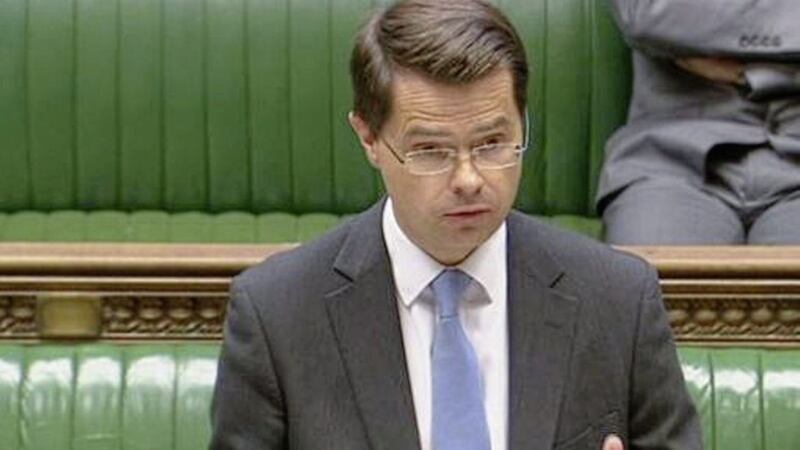IN Stormont hell, even limbo has seven circles - and we are about to lurch into another one.
Secretary of state James Brokenshire has announced he will perform one of the executive's thrice-yearly mini budgets via a written statement to Westminster.
He did something similar in April for the full budget but that comprised advice from civil servants based on policies set by outgoing Stormont ministers, plus an emergency law to strike the regional rate.
This time the autopilot has plainly been disengaged without any special legislation or mention of direct rule.
It is not clear what authority anyone has to do this, beyond what Brokenshire referred to in April as "the government's ultimate responsibility for political stability in Northern Ireland".
Luckily, there has not been a peep of protest from the main Stormont parties, otherwise this could be quite destabilising indeed.
**
Sinn Féin northern leader Michelle O'Neill has called for an end to the annual July 11 "display of hate". Why can loyalist youths not spend their holidays at graveside orations, like normal people?
DUP MP Emma Little-Pengelly has defended the burning of election posters as a form of free speech in the tradition of "classical liberalism".
In Sandy Row they speak of little else, although the actual tradition since time immemorial was to burn an effigy of Colonel Lundy.
That has only recently been replaced with more contemporary references, which might at best be described as a poor man's political commentary.
There is a similar tradition dating back to the mid-1500s in Sussex, where each November the villains of the year are burnt in effigy amid drunken violence.
Delightfully, this year's Sussex bonfires are likely to feature Arlene Foster.
**
In what looks set to be a regular theme, there is good and bad news on Brexit.
Guy Verhofstadt, the European Parliament's chief Brexit negotiator, has said a hard border would "contradict" the Good Friday Agreement.
However, the German government has decided border controls are no threat to the peace process - albeit mainly because Berlin does not want London using that excuse for extra leverage.
So Europe is slowly separating out the concepts of wrecking the Agreement and wrecking peace - a mental leap all too easy to make with the DUP and Sinn Féin wrecking Stormont.
**
Guy Verhofstadt has also suggested Irish passport holders in Northern Ireland should be able to vote for the European Parliament after Brexit, by increasing the Republic's quota of MEPs.
The parliament's Brexit committee chair ruled this out because the Republic does not want it, although northern nationalists would want it, so the idea deserves more consideration.
It certainly deserves a better answer than given by DUP MP Jeffrey Donaldson, who said it "breaches the Good Friday Agreement".
EU issues are essentially unrelated to the Agreement, as the DUP has insisted on every other matter and the Supreme Court has confirmed.
It is not just Boris Johnston who likes having his Euro-cake and eating it.
**
A legal challenge to the DUP-Tory deal is being sought by the campaigners behind last year's Article 50 case, although this time they have only been able to secure one obscure Green Party candidate as a plaintiff.
Perhaps that indicates the strength of their argument, which claims the deal breaches both the "rigorous impartiality" requirement in the Good Friday Agreement and the 2010 Bribery Act.
Legal experts have already concurred the deal does not violate the Agreement, while seeking a judicial review on the bribery accusation is just bizarre.
The 2010 Act defines criminal offences, so anyone who thinks it has been breached should simply call the police.
**
We have heard surprisingly little from advocates for a Bill of Rights since Sinn Féin made it a talks demand.
Campaigners do not want to tribalise their cause, judging by a survey from the Human Rights Consortium.
It asked Protestants and Catholics a few inane questions on whether they think human rights are "a positive thing" and "should apply to everyone", to which almost everyone naturally replied in the affirmative.
The Consortium, an umbrella body set up to lobby for a Bill, then trumpeted this non-news as "human rights unite Northern Ireland".
That message may be well-intentioned but it would be disingenuous to imply the Bill failed for tribal or even political party reasons.
It failed because of left-wing groupthink within the rights sector, which wanted to put public spending commitments into law and refused to accept this was outside the Bill's terms under the Good Friday Agreement.
**
Polling company LucidTalk has published the first professional survey since the DUP-Tory deal and it is mixed news for the top two parties.
The deal is hugely popular with DUP supporters but deeply unpopular with everyone else, meaning it may not be as broad a lure back to Stormont as the DUP had hoped.
Two-thirds of Sinn Féin supporters still want to restore devolution, making it a no-brainer for Gerry Adams.
However, the other third want joint authority - an unavailable option, which is why republicans stopped mentioning it after unwisely raising it during March's election.
Sinn Féin has thus managed the remarkable feat of having a no-brainer with a headache.
newton@irishnews.com









